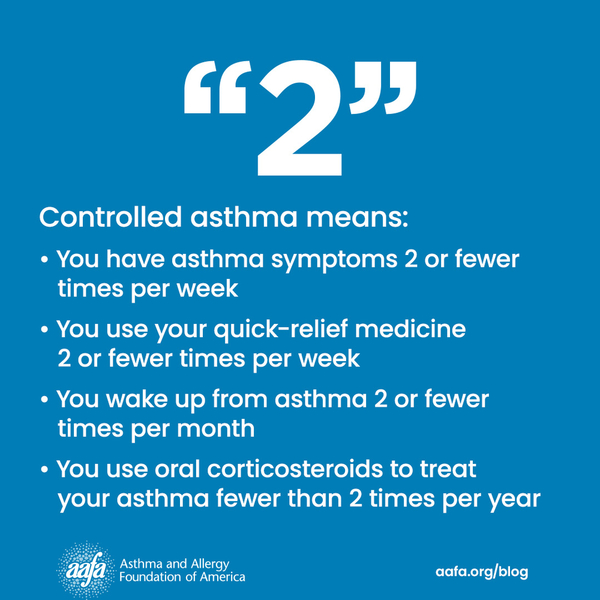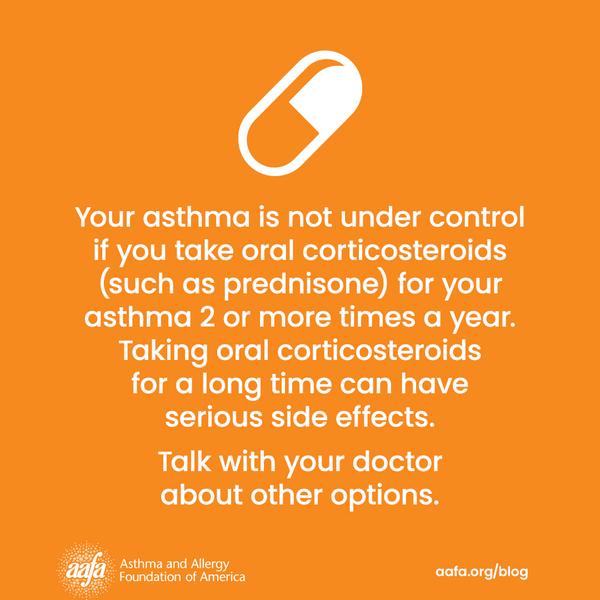Every September, asthma hospital stays rise. Doctors see more people with asthma episodes and attacks. The 3rd week of the month is the worst. It is called the September Asthma Epidemic or Asthma Peak Week.
Everyone with asthma needs to take extra steps to manage their asthma during September. Children are affected the most during the month. But adults are at risk too.
As we head into Asthma Peak Week, it’s important to know if your asthma is under control, how to avoid getting sick, and what to do if you do get sick.
Why Is Asthma Worse in September?
People with asthma and allergies are exposed to several triggers in September. Ragweed, the most common fall pollen allergy, is highest in September in the United States. Mold counts go up as leaves collect outside. Children return to school and may catch respiratory infections. Flu and cold season is starting too.
Being around all of these asthma triggers at the same time can make it hard to keep your asthma under control.
How Can I Manage Asthma During September?
The best way to deal with asthma attacks is to prevent them before they begin. If your asthma is not under control, talk with your doctor as soon as possible.
Here are some steps you can take to manage your asthma in September:
- Follow your Asthma Action Plan to keep your asthma under control.
- Get vaccines for respiratory infections such as influenza (the flu), COVID-19, respiratory syncytial virus (RSV), and pneumonia.
- Manage your allergies and your indoor air quality.
- Wear a mask in crowded places, washing your hands properly, and staying away from sick people.
- Get rest, adequate sleep and hydration, and healthy food.

To learn more about managing your asthma, visit: aafa.org/asthmapeak
How Do I Know If My Asthma Is Not Under Control?
If your asthma is under control, you are more likely to get better faster or avoid complications (serious health problems) when you are sick. It’s important to know if your asthma is under control, especially as respiratory illnesses are going around.
Controlled asthma means:
- You have asthma symptoms 2 or fewer times per week
- You use your quick-relief medicine 2 or fewer times per week
- You wake up from asthma 2 or fewer times per month
- You use oral corticosteroids to treat your asthma fewer than 2 times per year
If any of these things happen more than 2 times, your asthma is not under control.
Also, if you take oral corticosteroids (such as prednisone) 2 or more times a year, ask your doctor about other options. Oral corticosteroids can have serious, long-term side effects. Some of them may include osteoporosis (brittle bones), diabetes, and cataracts (when the lens of your eyes becomes cloudy).
Your doctor may run more tests or have you try other asthma treatments. Biologics are a type of treatment used to treat severe, uncontrolled asthma. They may reduce the number of asthma attacks you have and reduce the need for oral corticosteroids. Biologic treatments are shots or infusions you are given every few weeks. The treatment targets and blocks a cell or protein in your body that can inflame your airways.

What If I Have an Asthma Attack?
No matter how hard you try, sometimes you may still have an asthma attack. As soon as you have asthma symptoms, follow the Yellow/Caution Zone on your Asthma Action Plan. If your symptoms don’t get better, or if you have a respiratory illness, call your doctor. If you treat asthma symptoms sooner, you have a better chance of keeping them from getting worse.
Your doctor may give you a new treatment plan to follow while you have symptoms or are sick. Asthma can be serious, and you may need a course of oral corticosteroids to open up your airways and help you breathe.
If you are sick, get plenty of rest. Drink water and eat healthy foods. Continue to avoid your asthma triggers. Don’t ignore it or try to push through it. That can make it harder to get your asthma under control if you need emergency treatment. It can also be serious.
Know your Red/Danger Zone signs on your Asthma Action Plan. If you move into the Red/Danger Zone, call 911 or go directly to the emergency room.

Proper asthma control year-round is key to staying healthy during September. Stick with your treatment plan, avoid your triggers, and pay attention to your asthma control. Then next year, you’ll be better prepared to face Asthma Peak Week.
This content is developed independently by AAFA and made possible by support from Amgen.
Medical Review: August 2024 by Neeta Ogden, MD
Get answers to your asthma and allergy questions on our online forums.





Comments (11)